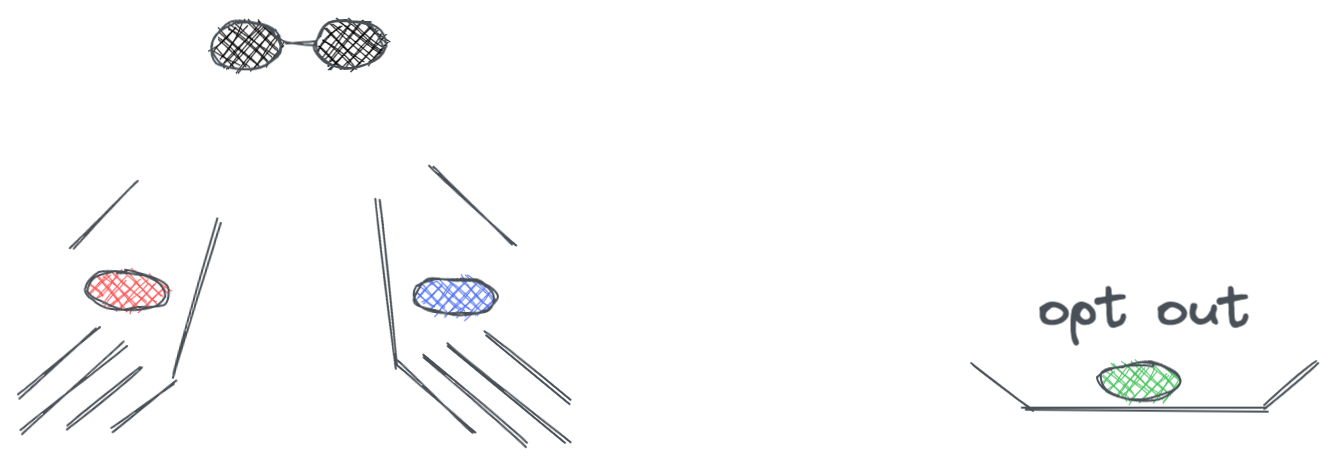Life is too short to drink cheap whiskey
- unknown
This is the third post in a series of 13 posts about how to be a game changer. In the previous two posts, we defined the concept and started looking at which games to change. Today we’ll look at the main way to be a game changer - to opt out.
According to Merriam-Webster dictionary a game changer is “a newly introduced element or factor that changes an existing situation or activity in a significant way”. While this definition is aligned with how some people use the phrase, it is superficial, and it doesn’t define what it means for a person to be a game changer.
One way this definition gets wrong is that it considers games mutable. By that logic any minuscule change in the parameters of the game is technically a game changer. Yet, I don’t want to be the type of person that starts a sentence with “Technically… ☝️”. I think what really matters is when the game is changed so much that the behavior of the players changes and they have to pick a new way to play. That’s when it gets really interesting and worth talking about.
We can think of changed games being an instance of a distinct new game. This distinction may seem contrived at this point, as what it means to be a new game is still ambiguous to separate out, but it will become clearer in a bit. By thinking of the changed game as a new game, we realize that the person who changed it decided not to play the old game. That person walked out, or opted out of the old game. They exited the old game. Which leads to the most common method people change games:
You become a game changer by opting out of bad games.

Opting out
Opting out starts as a seed in their mind. It might be as explicit as deciding - “I’m not going to participate,” but it can also be subconscious, or the person may decide to “hack” the existing game rules for their advantage. For example, a boxer may decide not to become good at knocking out their opponents but instead always win through a minimal point difference by having a new type of defense which doesn’t let others score points against them. They may keep their hands up protecting themselves all the time, and patiently wait for an opening. Their style may be described as “ugly” by traditional fans and called “not real boxing” by gatekeepers, but they will be effective nonetheless, and as a result other boxers may adapt the same “ugly” style. That boxer decided not to fight according to everyone else’s expectations - they opted out of the boxing narrative.
Other types of game-changing are more subtle and a lot of us do them every day. A busy person may find a way to meal-prep ahead their food for the week, thus discovering a new freedom in how they spend their time through the day. A student may drop a class they realized is not helpful or interesting, and go on a path towards a different major and career.
The ethics of opting out.
Opting out of negative-sum games is opting out of something unethical, and therefore it can be ethical, if replaced with something better. There might be a question of loyalty and trustworthiness about the person opting out. But expecting a loyalty from someone who is persistently on the losing side is itself unethical. If we want to live in a kind, ethical and rich world, at some point we have to opt out of unethical games.
Types of opting out
Opting out is a bit of an abstract concept, and by itself is not super actionable, as it begs the follow up question “What does opting out look like in a specific situation?” And the answers to this question may be manyfold - you may opt out by physically walking out, by focusing on a different objective than you’re expected to, by becoming less adversarial, by turning one-off situations into repeated situations, and even by reframing how you see and approach interactions.
Four years ago I started thinking about how everything we consume affects our thinking, and I started gradually opting out of alcohol, caffeine, social media. I wanted to play the game of life as myself, rather than be swayed by substances and narratives. I’ve also started opting out of certain types of food such eating too much sugar, or vegetable oils with polyunsaturated fats. And I also stopped using commercial shampoo and instead try to use a more wholesome soap. Recently I started opting out of hot showers and replacing them with cold showers in the morning. I’ve opted out of jobs and partnerships that looked promising.
Neo opted out of the Matrix.
Next up
The ways you can opt-out depend on which negative game you find yourself in, but the first step is always to detect the game. In the next posts, we’ll cover specific types of games and opting out in detail.